Sign up for The Envelope
Get exclusive awards season news, in-depth interviews and columnist Glenn Whipp’s must-read analysis straight to your inbox.
You may occasionally receive promotional content from the Los Angeles Times.

“Show, don’t tell” dictum aside, there’s nothing like a meaty speech to push a movie into overdrive. Last summer, Oscar nominee America Ferrera’s “Barbie” performance elicited whoops and hollers from moviegoers when her character, Gloria, railed at length against the impossible expectations faced by contemporary women. Arguably 2023’s most celebrated example of unapologetic speechifying, Gloria and her rant join the ranks of great movie talkers who’ve wowed crowds since the dawn of talkies.
Consider Jimmy Stewart’s “Mr. Smith Goes to Washington” impassioned plea to Congress, Bette Davis’ aging actress monologue in “All About Eve,” Peter Finch’s “mad as hell” tirade in “Network,” Sally Field’s fierce defiance as union organizer “Norma Rae,” Al Pacino’s “Any Given Sunday” pep talk-to-end-all-pep talks, Samuel L. Jackson’s pre-execution Bible-quotes in “Pulp Fiction” and Meryl Streep’s withering “cerulean blue” origins story from “The Devil Wears Prada.”
Extending that grand oratorical tradition, actors in current Oscar-season movies enjoyed ample opportunity to wax eloquent via riled-up characters who simply cannot contain themselves any longer. Here’s a look at some of this season’s great moments in speechifying.
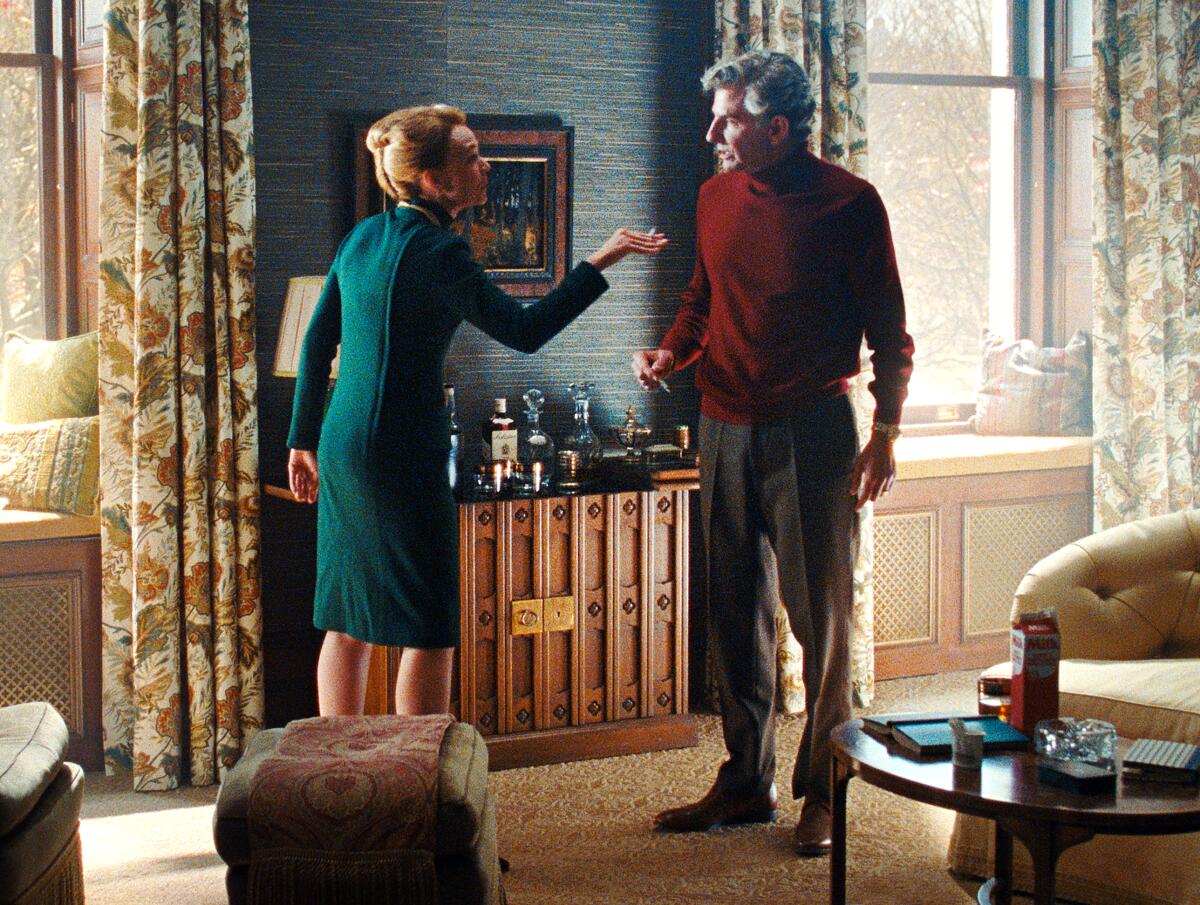
Written by: Josh Singer and Bradley Cooper
Who’s talking: Carey Mulligan’s Felicia Montealegre
Who’s listening: Leonard Bernstein (Bradley Cooper)
Subtext: Sidelined for years by her glamorous, bisexual husband, Felicia is fed up.
Text: “Your truth is a f—ing lie that sucks up all the energy in every room and gives the rest of us zero opportunity to live or even breathe as our true selves. Your truth makes you brave and strong and saps the rest of us of any kind of bravery or strength. Because it’s so draining, Lenny, it’s so f—ing draining to love and accept someone who doesn’t love and accept themselves. And that’s the only truth I know about you. … If you’re not careful, you’re going to die a lonely old queen.”
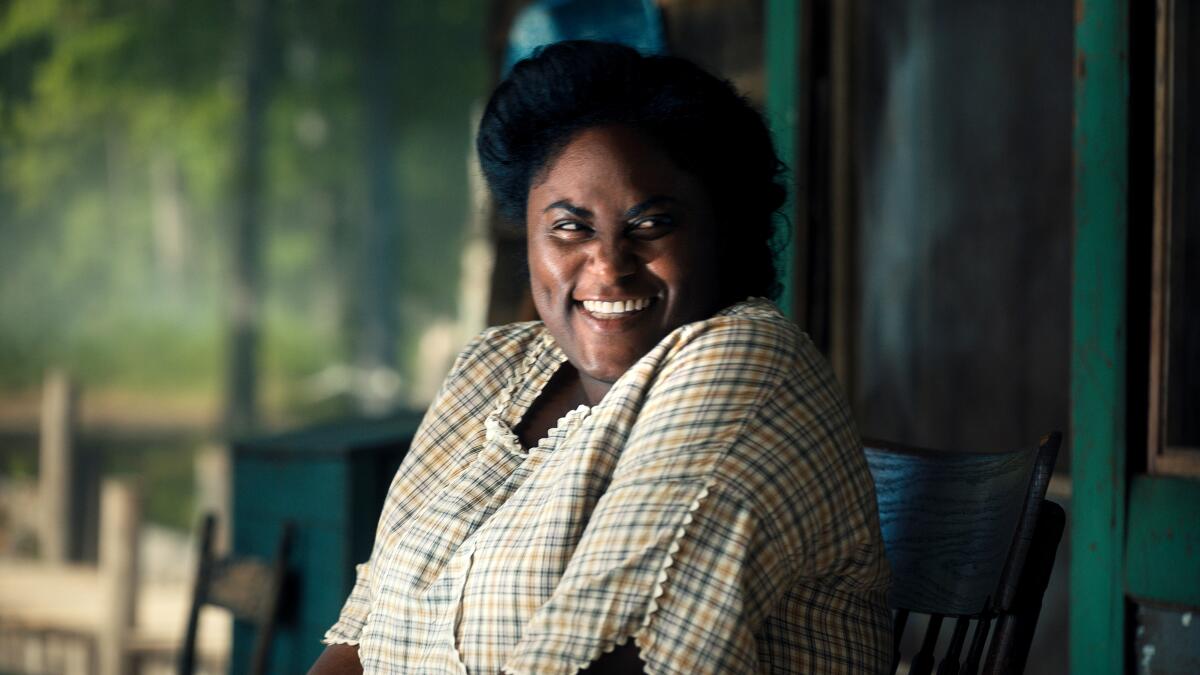
Written by: Marcus Gardley
Who’s talking: Danielle Brooks’ Sofia
Who’s listening: Celie (Fantasia Barrino) and her dysfunctional family gathered around the table for Thanksgiving dinner.
Subtext: A shell of her former bawdy self after serving years in prison for offending a racist white woman, Sofia makes her comeback when Celie insults the tyrannical “Mister” (Colman Domingo).
Text: “She called him a sack of dead horse s—! Now if that ain’t worth the joy of laughter, I don’t know what is. Harpo, pass me them peas.… Yes, Lawd. I wants to thank you, Miss Celie ... for everything you done for me. I was feelin’ my bad rottin’ in that prison cell. But you came and seen’t ‘bout me every week without fail. That’s how I knows there’s a God. ‘Cause He gots to be livin’ in you. Harpo, pass me dat ham.”
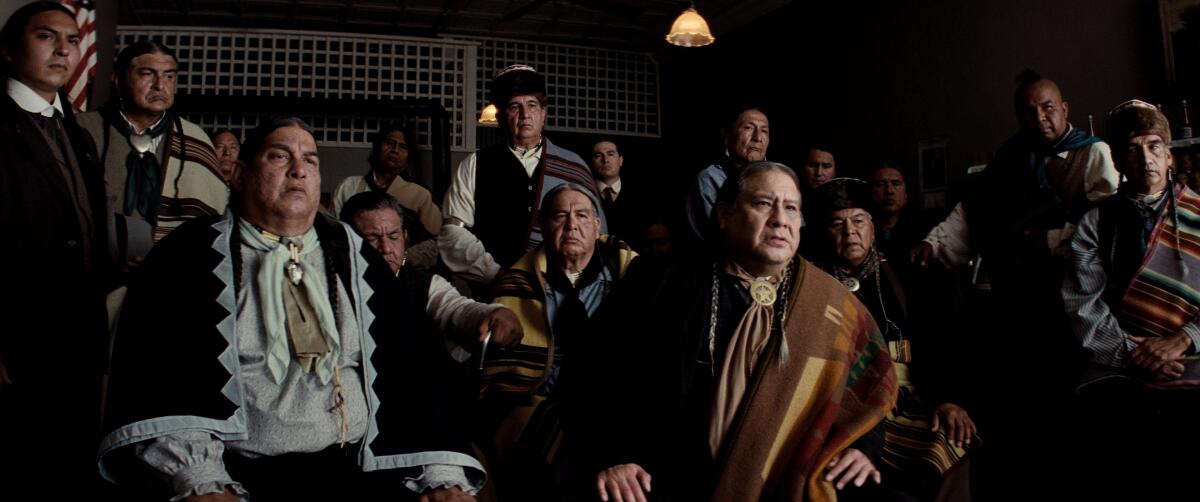
Written by: Eric Roth and Martin Scorsese
Who’s talking: Yancey Red Corn portraying Osage Tribal Council Chief Bonnicastle
Who’s listening: FBI agent Tom White (Jesse Plemons), in Oklahoma to investigate murders within the Indigenous community
Subtext: Early on, Robert De Niro’s William Hale delivers a classic villain-pretending-to-be-nice speech, but it’s Bonnicastle who truly articulates his tribe’s frustration.
Text: “In the old days, we would fight these people. Twenty years ago I fought overseas in the Boxer Rebellion. I was one of the first to climb over that Great Wall. I knew who my enemy was, and I knew who I had to kill. If we could find these people, we would fight them. But now this invisible enemy we cannot see. We can’t trust any of the local officials. We can’t trust the state government. We can’t trust the Bureau of Affairs officials. We can’t trust our neighbor. We can’t trust the local pastor. We can’t trust the morgue, the morticians, funeral homes. We can’t trust you. We can’t trust anybody. We don’t see any stop.… Try to make it stop.”
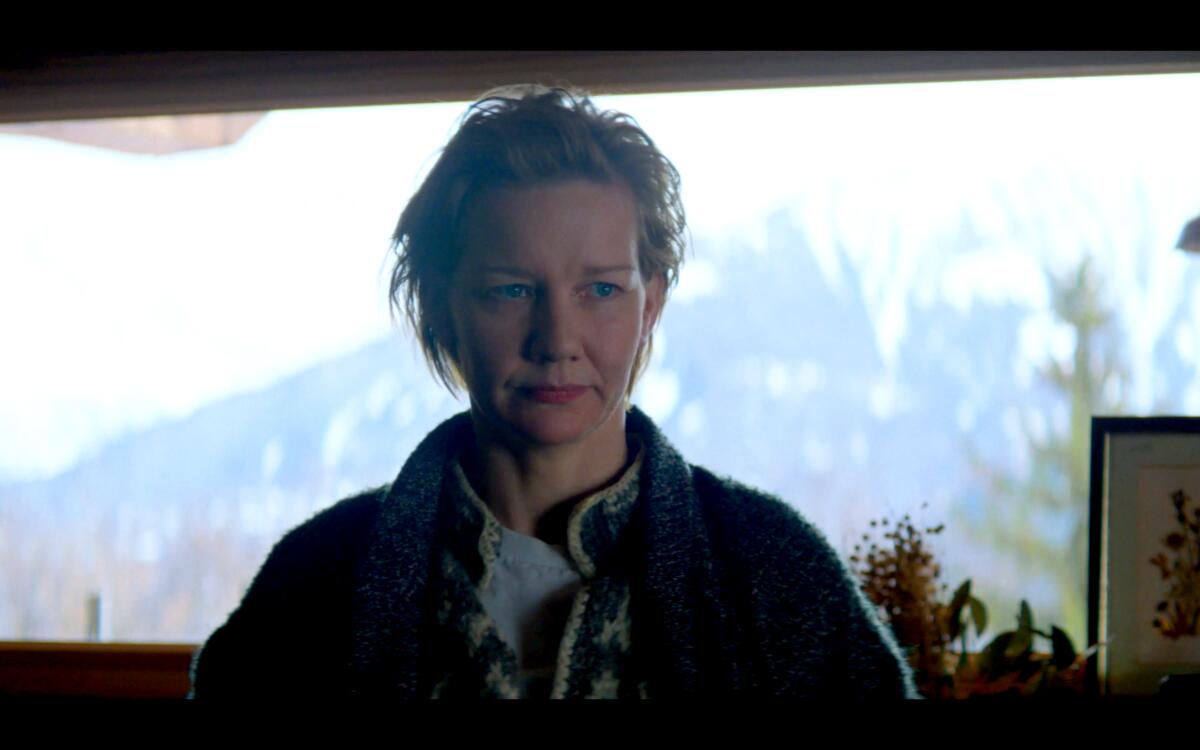
Written by: Arthur Harari and Justine Triet
Who’s talking: Sandra Hüller as Sandra Voyter, on trial for murder
Who’s listening: Sandra’s now-deceased husband (Samuel Theis)
Subtext: In a courtroom flashback, the previously taciturn Sandra reanimates an argument from her fractious marriage.
Text: “First of all, I don’t believe in the notion of reciprocity in a couple. It’s naive and, frankly, depressing. And, yes, I think discussing it is a waste of time, considering the state you’re in, seriously. All this blah, blah, blah, and more time is gone; all this time spent chitchatting could be spent in silence, doing whatever you want, if only you knew what it is that you want.”
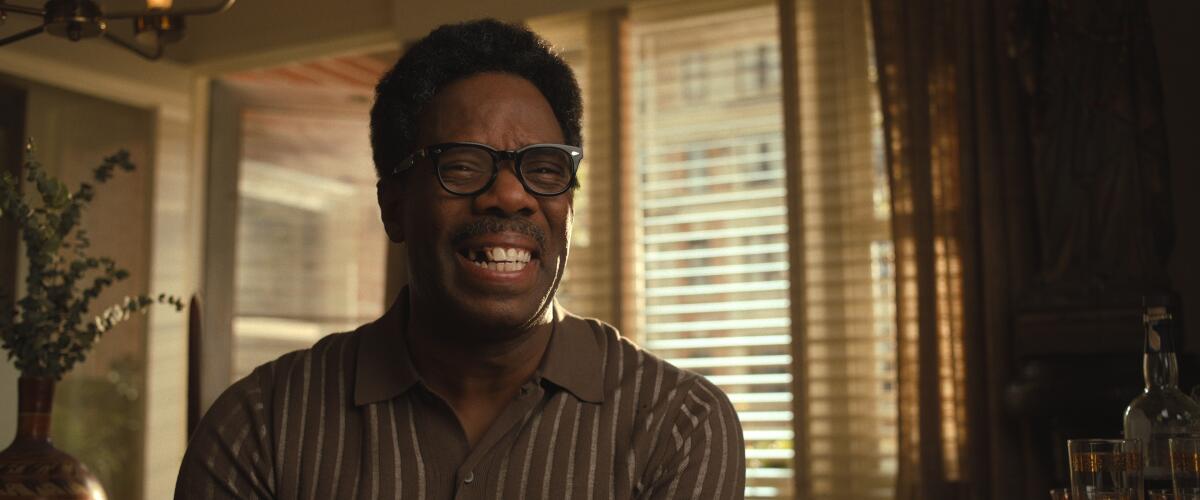
Written by: Julian Breece and Dustin Lance Black
Who’s talking: Colman Domingo, portraying civil rights organizer Bayard Rustin
Who’s listening: The Rev. Martin Luther King Jr. (Aml Ameen)
Subtext: Rustin, who’s gay, faces dismissal because of his sexual orientation even as he’s organizing the historic 1963 March on Washington that would culminate with King’s “I Have a Dream” speech.
Text: “You are one of the smartest men I know, so explain to me why, with all that is left undone, do I find myself forced to yet again justify my existence. Each of us has been taught, in ways both cunning and cruel, that we are inadequate, incomplete. And the easiest way to combat the feeling of not being enough, is to find someone we consider less than. Less than because they are poorer than us, or darker than us, or desire someone who our church and our laws say they should not desire. And when we tell ourselves such lies, start to live and believe such lies, we do the work of the oppressors by oppressing ourselves. Strom Thurmond and Hoover don’t give a s— about me. What they really want to destroy is all of us coming together and demanding this country change. … On the day that I was born Black, I was also born a homosexual. They either believe in freedom and justice for all, or they do not.”
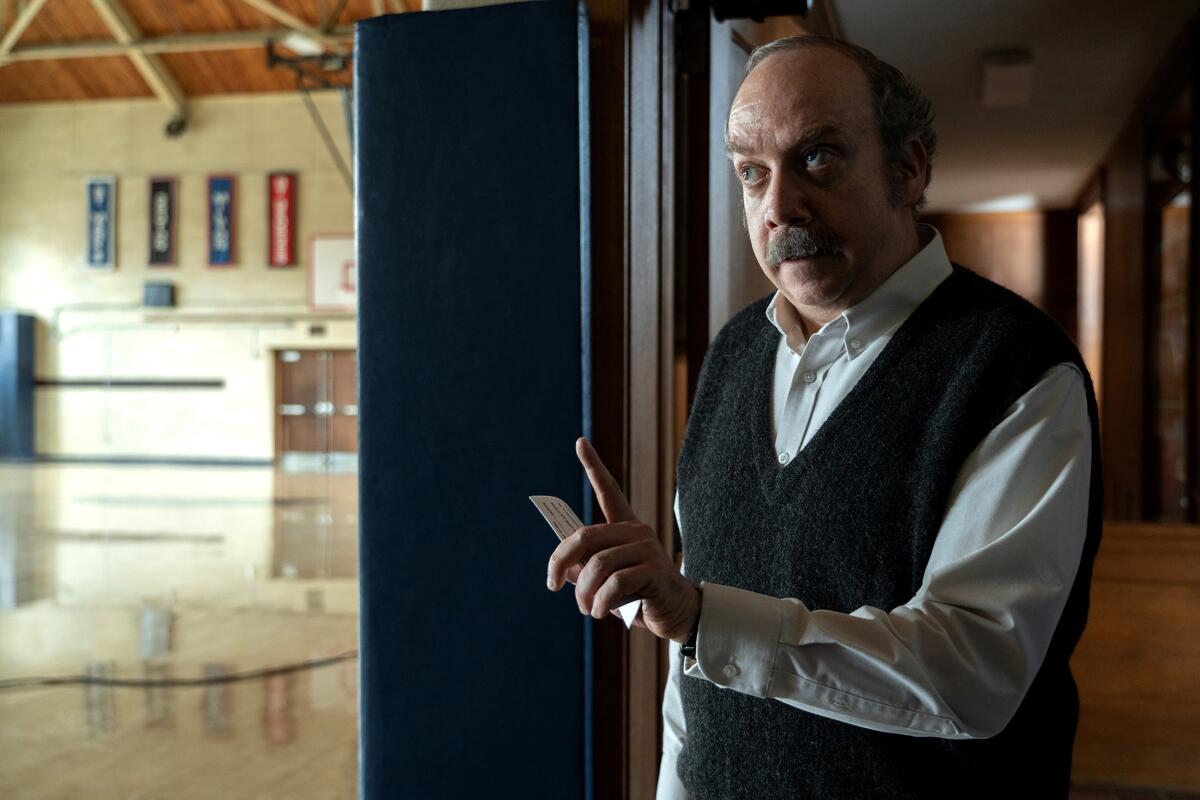
Written by: David Hemingson
Who’s talking: Paul Giamatti as prep school history teacher Paul Hunham
Who’s listening: Unhappy student Angus Tully (Dominic Sessa)
Subtext: Stuck together over the Christmas holiday, Tully questions the relevance of Mr. Hunham’s ancient history specialty.
Text: “There’s nothing new in human experience, Mr. Tully. Each generation thinks it invented debauchery or suffering or rebellion, but man’s every appetite and impulse, from the disgusting to the sublime, is on display right here, all around you…. So before you dismiss something as boring or irrelevant, remember that if you truly want to understand the present, or yourself, you must begin in the past. History is not merely the past, Mr. Tully. It’s an explanation of the present.”
Written by: Greta Gerwig and Noah Baumbach
Who’s talking: America Ferrera as Mattel employee Gloria
Who’s listening: Stereotypical Barbie (Margot Robbie) and her fellow Barbies
Subtext: Gloria stifled her dreams to accommodate the men she works for until she bonds with Barbie and unloads on the facts of misogynistic life.
Text: “You’re supposed to be thin but not too thin, and you can never say you want to be thin, you have to say you want to be healthy, but you also have to be thin. You have to have money, but you can’t ask for money, because that’s crass. You have to be a boss, but you can’t be mean. You’re supposed to lead, but you can’t squash other people’s ideas. You’re supposed to love being a mother but don’t talk about your kids all the damn time. You’re supposed to be a career woman but always be looking out for other people. You have to answer for men’s bad behavior, which is insane, but if you point that out, you’re accused of complaining. You’re supposed to stay pretty for men but not so pretty that you tempt them too much or that you threaten other women, because you’re supposed to be a part of the sisterhood. ... You have to never get old, never be rude, never show off, never be selfish, never fall down, never fail, never show fear, never get out of line.”
Sign up for The Envelope
Get exclusive awards season news, in-depth interviews and columnist Glenn Whipp’s must-read analysis straight to your inbox.
You may occasionally receive promotional content from the Los Angeles Times.